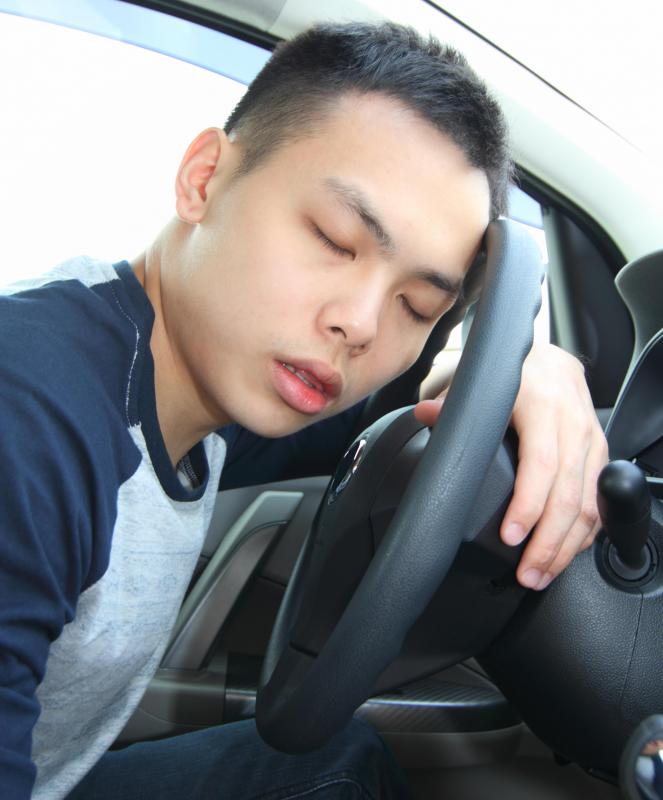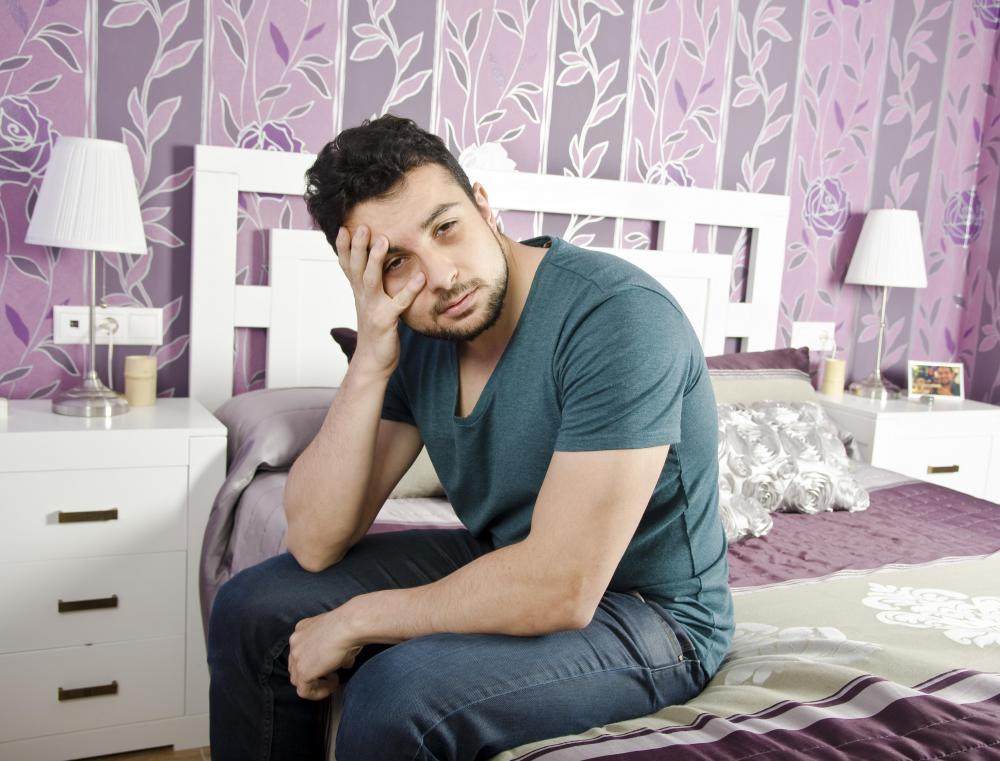At WiseGEEK, we're committed to delivering accurate, trustworthy information. Our expert-authored content is rigorously fact-checked and sourced from credible authorities. Discover how we uphold the highest standards in providing you with reliable knowledge.
What is a Tranquilizer?
A tranquilizer is a central nervous system medication that is used to decrease anxiety, promote calmness, and induce sleep. Typically, a tranquilizer is referred to as a depressant because it suppresses the action of the central nervous system and slows down the body. Generally, tranquilizers are prescribed to treat anxiety and insomnia. In addition, they are sometimes used in the treatment of mental illness. Although these prescription medications are highly effective, they can become habit forming and cause the patient to become dependent.
There are two classifications of the tranquilizer. These drugs are referred to as either major or minor tranquilizers. The former are classified as anti-psychotic medications and the latter are known as anti-anxiety drugs. Typically, antipsychotic medications are used to treat patients who have been diagnosed with a severe mental illness. These mental illnesses include schizophrenia and bipolar disorder. In contrast, minor tranquilizers are often prescribed to treat patients who present with emotional disorders such as anxiety.

Thorazine, a major tranquilizer, is sometimes administered to patients who are severely disturbed and psychotic. Generally, a major tranquilizer can offer tranquility in the otherwise agitated and combative patient. In addition, patients and caregivers often notice a dramatic sedative effect after administration of the drug. Unfortunately, in those individuals receiving a major tranquilizer, mental awareness will often be diminished, although in rare situations, this may be desirable, especially in the combative patient who may hurt himself.

By contrast, minor tranquilizers have much less of an effect on those patients who take them. Valium, Xanax, and Ativan are examples of some widely prescribed tranquilizers. Unlike the major tranquilizer classification, these drugs are often prescribed to patients whose major complaints are anxiety, sleep disorders and depression. Typically, the minor tranquilizer works by reducing anxiety and tension without having a heavy sedative effect. Although effective in relaxing muscles, they produce far less daytime sleepiness than do major tranquilizers.

It is very important to note that although these medications are very effective in relieving anxiety and certain psychotic conditions, they are not curative. In addition, these drugs should never be taken in conjunction with alcohol, as the combination can not only intensify the effect, but they can also cause toxicity and overdose. In addition, patients should never drive a motor vehicle or operate heavy machinery for a few hours after taking medications because tranquilizers can greatly affect coordination and delay response time.
AS FEATURED ON:
AS FEATURED ON:


















Discuss this Article
Post your comments